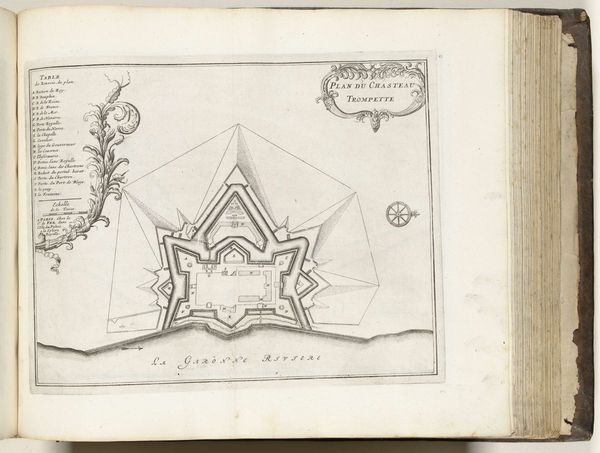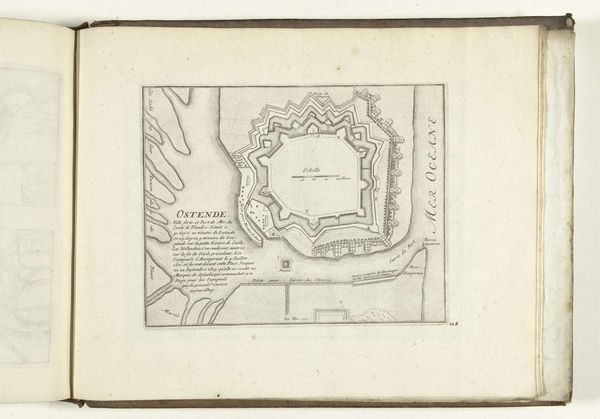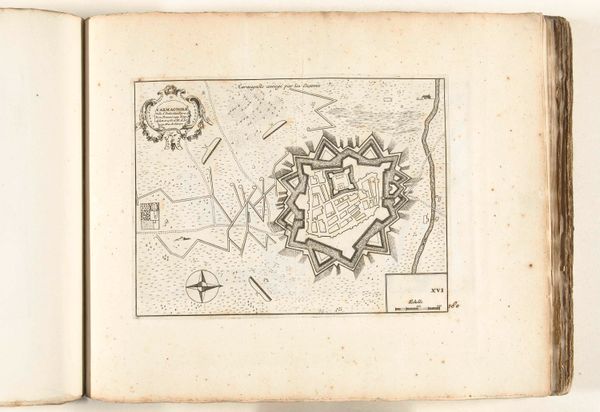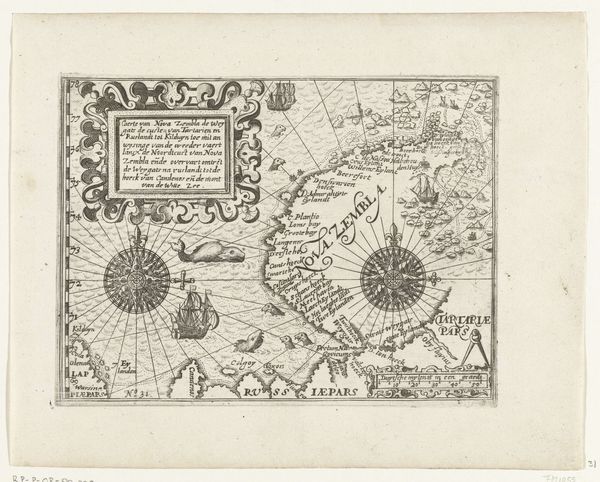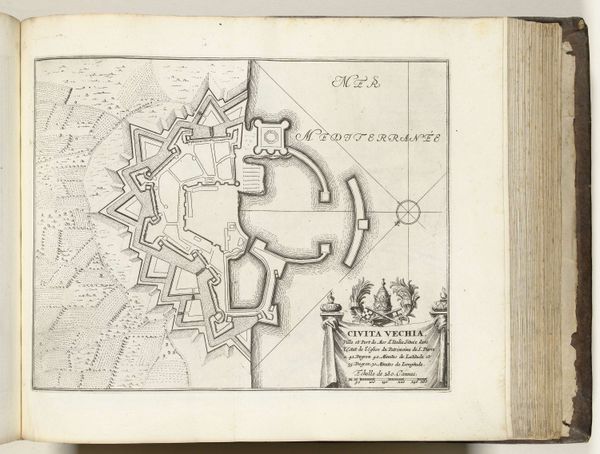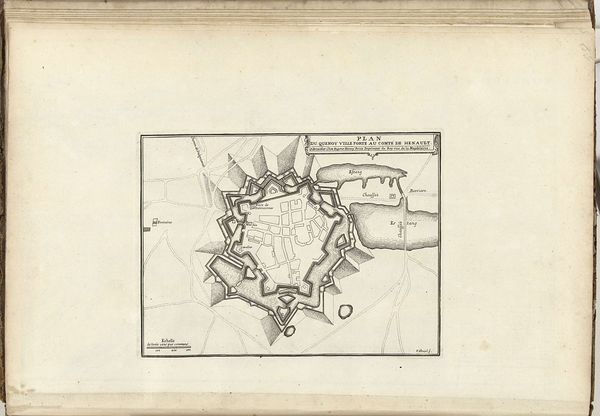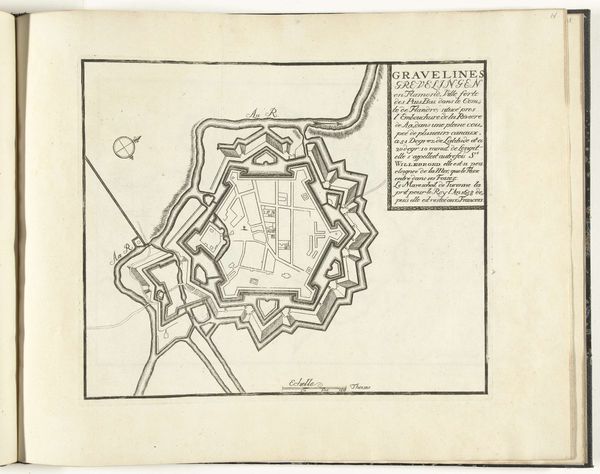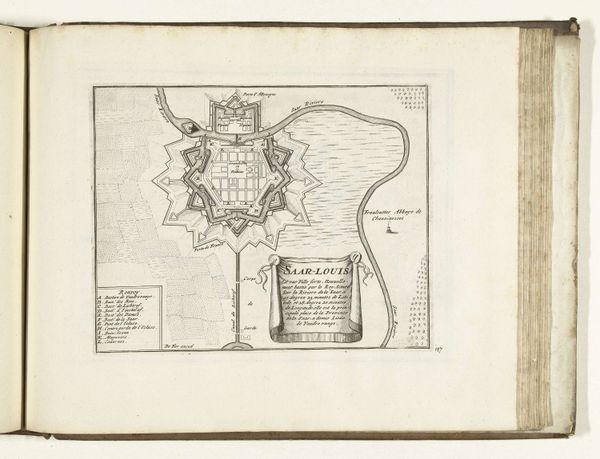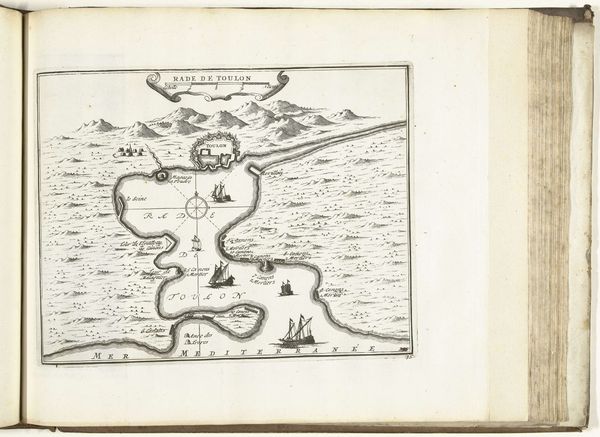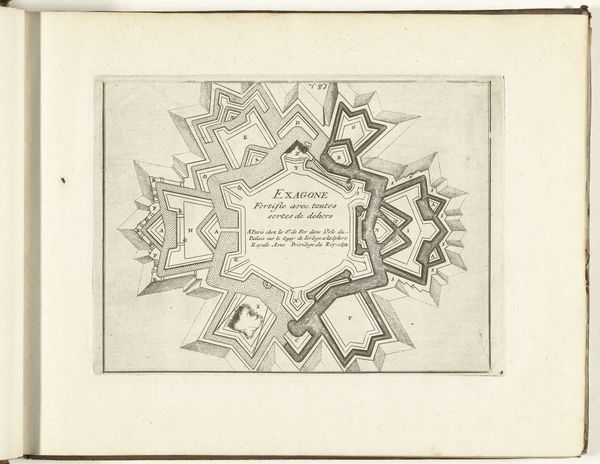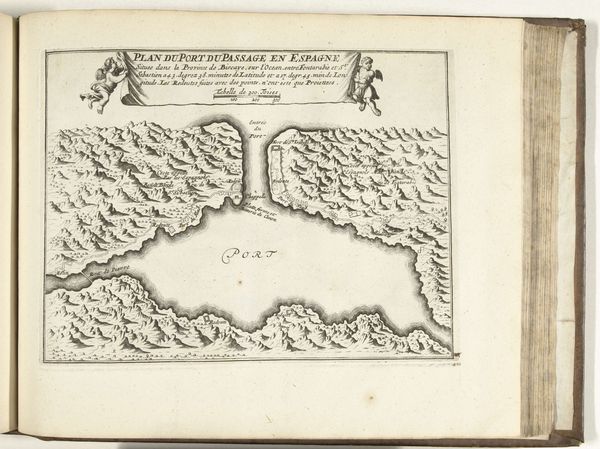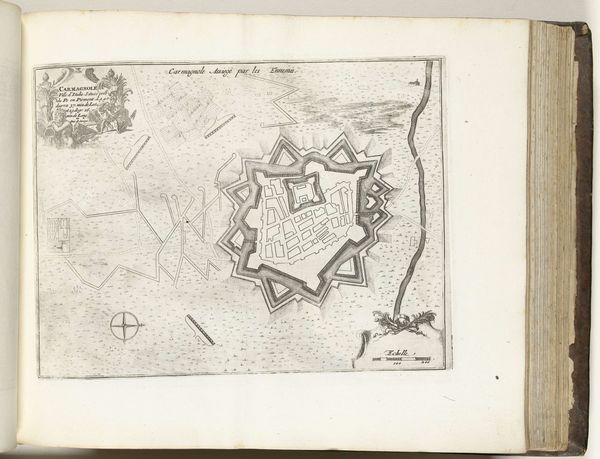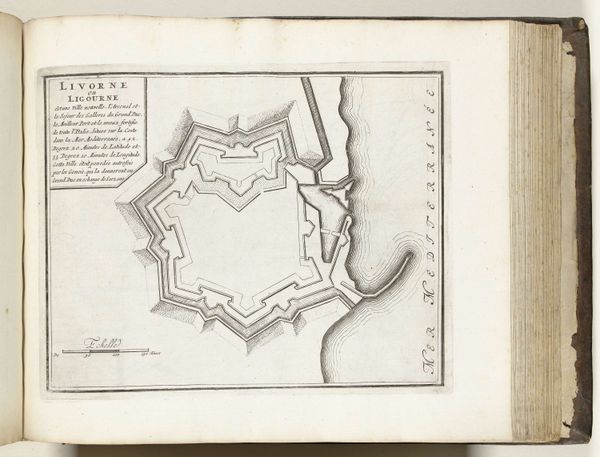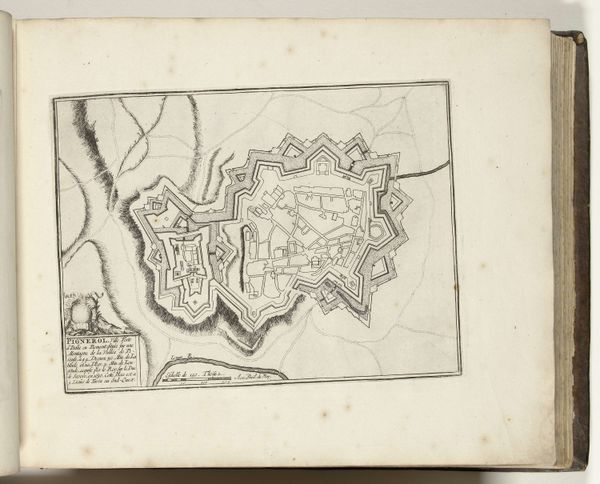
drawing, print, paper, ink, engraving
#
drawing
#
baroque
# print
#
pen sketch
#
paper
#
ink
#
geometric
#
cityscape
#
engraving
Dimensions: height 222 mm, width 295 mm
Copyright: Rijks Museum: Open Domain
Editor: This is a map titled "Plattegrond van Château Trompette, 1726," created in 1726. It looks like an engraving or drawing of a star-shaped fort by an anonymous artist. I’m immediately struck by the intricate geometrical design; it feels almost like an elaborate puzzle. What stands out to you when you look at it? Curator: The geometry isn’t just about aesthetics; it speaks volumes about the cultural anxiety of the time. That star shape—it’s a visual echo of power and paranoia, right? Each point a watchful eye, each angle designed to deflect threat. It embodies a cultural memory of sieges and conflicts. Think about the weight such a symbol carries – defense, but also dominance. Do you notice the river depicted in relation to the Chateau? Editor: Yes, La Garonne Riviere. It looks strategically important to the Chateau. Is there significance to locating the Chateau so close to the water? Curator: Absolutely! Water symbolizes both sustenance and vulnerability. Placing the Chateau alongside the Garonne suggests access to resources but also a potential avenue for invasion. Look at the wind rose - or compass rose- placed near the Chateau, what do you think it may symbolize in relationship to this image? Editor: It could mean orientation and awareness. It also mirrors the shape of the Chateau… so in a way, it almost reinforces the symbolic importance of the structure. Curator: Precisely. This map isn't just a representation of space; it’s a representation of how power and knowledge were visualized and communicated. Knowing its symbols reveals so much about its intended audience and the culture that created it. Editor: That makes so much sense. I initially just saw a neat design, but now I appreciate how every element holds historical meaning. Thanks!
Comments
No comments
Be the first to comment and join the conversation on the ultimate creative platform.
